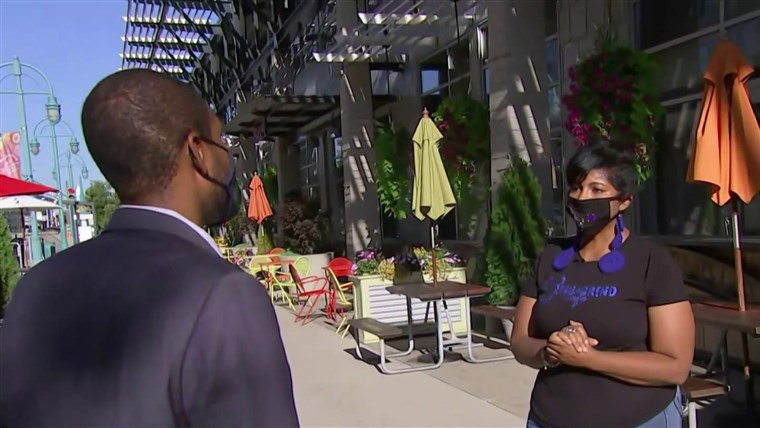It’s too early to tell how much Joe Biden’s selection of Sen. Kamala Harris as his running mate will help boost support for the Democratic ticket among African American voters. But this much is clear: Increasing Black turnout from 2016 levels will be critical to Biden’s ability to win back key battleground states.
The Republican 2016 victory was mostly attributable to the defection of white working-class voters to Donald Trump. But Trump’s breakthrough might not have been possible without a post-Obama decline in turnout and support for Democrats among Black voters.
Data from the census shows that in 2012, 66 percent of eligible Black voters turned out to vote, and exit polls showed that they supported the Obama/Biden ticket by 87 points. But in 2016, only 59 percent of Black voters turned out, and exit polls showed the all-white Clinton/Kaine ticket carried those voters by just 81 points.
African American voters account for roughly 12 percent of eligible voters nationally, and they account for a substantial share of the vote in six of the seven states Trump carried by 5 points or less in 2016: Florida (15 percent), Georgia (32 percent), Michigan (13 percent), North Carolina (22 percent), Pennsylvania (10 percent) and Wisconsin (6 percent).
An NBC News/Cook Political Report analysis of census and election data from these states shows that the decline in African American turnout and Democratic support from 2012 to 2016 was probably enough to tip at least Michigan and Wisconsin — and possibly Florida and Pennsylvania — to Trump.
Amping up African American enthusiasm could pay particular dividends for Biden in Wisconsin, where the Clinton campaign spent scant resources and turnout in Milwaukee plummeted. But even in states like Michigan, North Carolina and Pennsylvania, where Black turnout was more robust, there were 397,000, 488,000 and 370,000 eligible Black voters, respectively, who failed to turn out last time.
If Biden had a glaring weakness in the primaries, it was with young voters, who strongly backed Bernie Sanders. And if there’s one group where turnout dropped precipitously between the Obama era and 2016, it’s younger voters of color.
Harris never gained much traction with either of these groups — or really any group — in the 2020 primaries. But limited polling data in the past month shows that Harris, 55, who is more than two decades younger than the 77-year-old Biden, could marginally benefit him.
An early August GWU/Battleground Poll found that Harris had a similar net favorability among 18-to-29-year-old voters (38 percent favorable to 34 percent unfavorable) to Biden (51 percent to 46 percent), and a higher net favorability among 35-to-44-year-old voters (44 percent to 33 percent) than Biden (49 percent to 47 percent).
Trump and his campaign’s surrogates have already begun attacking the Biden/Harris ticket as a pairing of coastal elites out of touch with middle America. “Now, she wants to turn America into San Francisco,” warned fellow Californian and House Minority Leader Kevin McCarthy.
But Biden and Harris are the first ticket without an Ivy League degree in four decades, and polling suggests the burden of proof rests on Republicans. The GWU/Battleground poll found Harris’ favorability in the Midwest at 46 percent to 31 percent, higher than her national favorability and much higher than Vice President Mike Pence’s favorability in the Midwest (35 percent to 53 percent).
At least initially, at a time when voters desire racial unity and give Trump awful marks on his handling of race relations, it’s hard to see Harris as anything other than a plus for Biden. After all, Biden already has a good track record running on a national ticket with an African American attorney in a first term as senator from a blue state.


